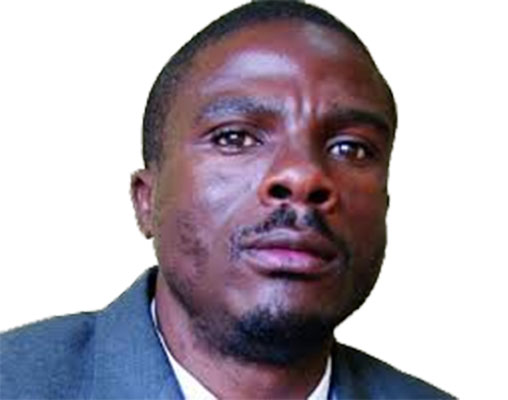
travelling & touring:with Burzil Dube
THIS week’s article was mainly supposed to dwell on supernatural powers, which are said to have manifested during the period of early colonial settlers under Cecil John Rhodes.
Local history students and researchers might be aware of spirit mediums such as Sekuru Kaguvi, Mbuya Nehanda and Mukwati, among others.
These mediums were said to have been instrumental in spearheading the Ndebele and Shona uprising of 1896/7 which completely caught colonial settlers by surprise.
Mukwati is reported to have been a Tonga spirit medium of note and whose supernatural powers in repelling colonial forces in both Matabeleland and Mashonaland provinces were awesome.
Yours truly is rather not spinning some fictional yarn or trying to rewrite history, but just laying out the facts according to Tonga oral tradition.
Once all the necessary facts and documentation are gathered on the person and character of Mukwati, then the truth about this individual would certainly be laid bare.
Facts are currently being meticulously gathered.
- Chamisa under fire over US$120K donation
- Mavhunga puts DeMbare into Chibuku quarterfinals
- Pension funds bet on Cabora Bassa oilfields
- Councils defy govt fire tender directive
Keep Reading
Anyway, allow yours truly to take you back and continue with last week’s article where we delved into how the early Tonga chiefs managed to settle in Hwange, courtesy of Nelson Munzabwa’s research document.
We also want to establish how some of the names such as Mapeta, Tyanga LyaManene and Simangani, among others, came into being.
All these places are situated within Hwange district.
It was during the reign of Moofu Mampolo, better known as Chief Mapeta, when some youths, while playing along the mouth of Deka River saw “strange” characters armed with short spears and rather long shields.
The youths ran to inform the elders on what they had seen especially about how the men were armed.
This is what they said in their Tonga lingo: “Twabona tanga lya Manene”, which literally means group of unknown abled-bodied men.
This particular place, which is situated on the Deka River mouth is today still being called Tanga LyaManene.
Chief Moofu or Mapeta sent his men to invite the group to his royal kraal in order to find out their motives for coming to his chiefdom unannounced.
He was shocked to discover that they were Matabele warriors under the command of Mpotshwane, one of the most valiant of King Mzilikazi generals.
Mpotshwane’s main mission was to capture the fleeing Chilisa and some Nambya subjects, who had hastily fled Bumbusi settlement in Sinamatella.
Sensing that the odds were staked against him and his entire tribe, Chief Mapeta blew his magical horn in an effort to “charm” Mpotshwane and his crew.
It is reported that the Matabele warriors’ anger was surprisingly calmed and were later given food to eat in the form of pumpkins and maize that was grown along the Zambezi River bank.
After finishing the food, Mpotshwane had to ask Chief Mapeta and those who were present: “Kuyini esikubangayo? Sibangani na?”, which loosely translated was a question on why the two different forces were quarrelling.
Hence it is known today as Simangani because the Tonga failed to pronounce the word “Sibangani” and ended up pronouncing it as Simangani.
In the Simangani area, there is an island at the mouth of Deka River where it empties into the Zambezi River and this particular islet is currently known as Mapeta Island.
The island used to be a place of refuge for Chief Mapeta whenever the Matabele warriors or the Kololo attempted to raid them and that is how the name Mapeta Island came into being.
The stretch is where the popular Deka Drum Fishing Resort is also situated and, hence, it is an ideal place for recreational purposes.
It is said Chief Mapeta Moofu died on this island, but was, however, buried at Malala-chilwi in Kawunza in the Simangani area.
During the 1970s, the Simangani area was also a fierce battleground between Zipra forces and the Rhodesian army.
Zipra was the armed wing of the Zimbabwe African People’s Union that was led by the late Vice-President Joshua Nkomo.
Following Chief Mapeta Moofu’s death, there were fights within members of the family over the proper person to ascend to the chieftainship.
The tug-of-war was between Siachimeka and Ngandu.
According to the Tonga matrilineal system, Ngandu as the son of the late Chief Mapeta was not supposed to be anywhere near the throne.
The elders argued that a son must never inherit the chieftainship of his father because there was no way he could inherit his mother as a wife.
Mysterious things mainly centred around the struggle for the chieftainship began to happen as Siachimeka disappeared without trace and his body was never found.
Ngandu’s daughter was also said to have been caught by a huge octopus while she was bathing at the mouth of Deka River and disappeared in its grip into the river’s deep waters.
He was given a place to stay in Mbala which is adjacent to present-day Lukosi.
Following Ngandu’s abrupt departure, the people of Mapeta tried to install Silambuki, the brother of Siachimeka, as acting Chief Mapeta before finally settling for Vulundu.
However, Vulundu died before he could be installed and they later chose Tayi Katabi to be the chief and he also met a similar fate.
Strange indeed.
Till we meet again in the next instalment.
l Comments always welcome on: [email protected] or Twitter: @DubeBurzil










